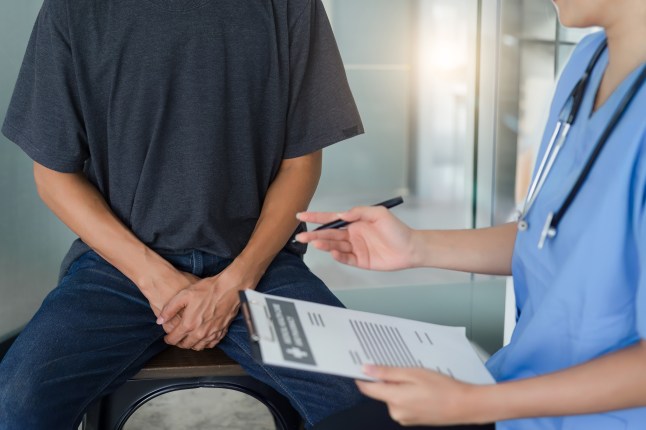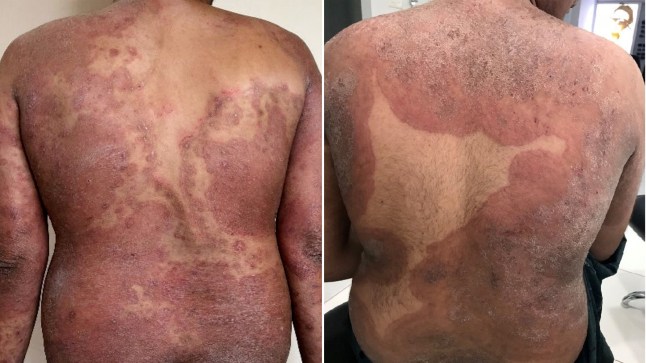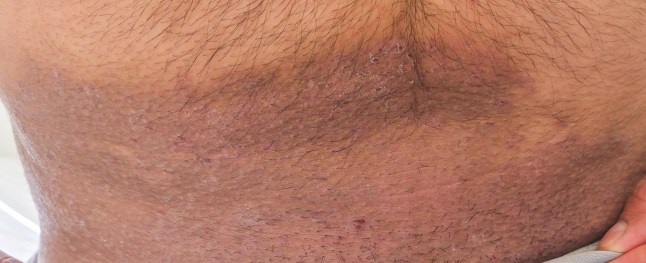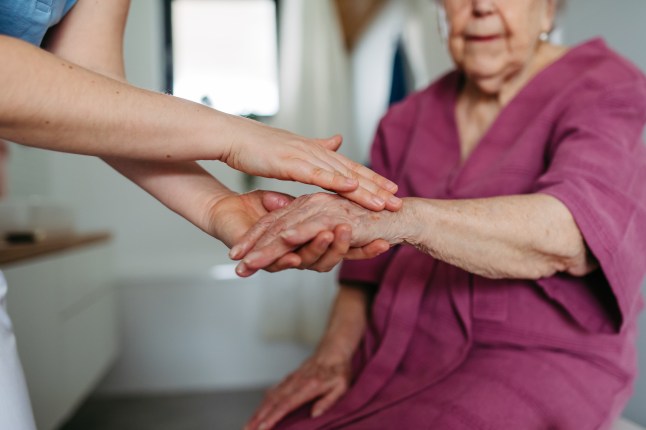
From ingrown hairs, uncomfortable underwear and downright terrible sex, our private parts go through a lot.
And of course, there’s also some pretty nasty STIs we have to be aware of, including common infections like chlamydia, and lesser-known ailments such as shigella.
But there’s one infection we’re betting you haven’t heard of which is sweeping the UK, and it affects your groin and bottom.
It’s called trichophyton indotineae, described as a ‘turbocharged’ fungus.
Here’s everything you need to know.

What is trichophyton indotineae?
‘It’s essentially a more stubborn and aggressive version of ringworm,’ Dr Chun Tang, GMC registered GP at Pall Mall Medical, tells Metro.
‘It’s a fungal infection that can form on your skin, hair or nails, but unlike the typical strains this one doesn’t always clear up with antifungal medicines.
‘That’s why it has caught the attention of doctors internationally. It behaves like a turbocharged form of the same fungus.’
It was first seen in South Asia, particularly in India, where it’s warm and humid. ‘Crowded living spaces and the widespread use of steroid creams have helped it to spread,’ Dr Tang adds.

‘As so many people travel it has naturally begun appearing in other countries, including over here.’
In fact, Professor Darius Armstrong-James, a fungal expert at Imperial College London told The Sun cases in the UK have surged 500% in the past three years.
‘The important point is that dermatologists are seeing far more infections,’ Dr Tang explains.
What are the symptoms?
If you happen to contract this infection, there will be signs.
‘People usually develop itchy, red, inflamed patches of skin that can crack or become sore,’ Dr Tang says. ‘The rash is sometimes circular, but not always, and it often looks more severe and widespread than typical ringworm.’

It can affect many areas of the body, scalp, nails, feet or groin and bottom area – really no place is off limits. On your feet the doctor explains it can look like a more serious form of athlete’s foot.
While unpleasant, for most healthy adults, these symptoms aren’t dangerous.
‘It can be very uncomfortable and disruptive,’ Dr Tang adds. ‘The itching can make it hard to sleep and get through daily life and scratching can damage the skin and sometimes cause secondary infections.’
Once the infection clears up, the area may look a bit lighter or darker than usual for a while, but this typically fades, and scarring is rare unless the skin has been badly scratched or infected.
How contagious is it?
For Dr Tang, the bigger concern is how easily the virus spreads, rather than the symptoms.
‘If one person in a household becomes infected, it can quickly pass to others unless it is treated promptly,’ he says. ‘It spreads through direct contact with infected skin, which can include hugging, sharing a bed, or other close household contact.’
And yes, while it’s not classed as an STI, it can be passed on if you’re having sex – so you’ll want to avoid doing the deed if you suspect you’re infected.
It can also be passed on through shared towels, clothing, bedding or gym equipment. This is unlike chlamydia, despite gym goers concerns last year.

Trichophyton indotineae spreads in this environment because it’s especially warm, sweaty and damp, so make sure you’re fully wiping the equipment you use.
‘Contaminated surfaces such as exercise mats, gym showers and changing rooms can carry it too,’ Dr Tang says. ‘Unlike some other fungal infections that come from animals, this strain is mainly passed from person to person.’
Can it be treated?
Now don’t be alarmed, but some infected with this fungus have found it to be drug-resistant. This doesn’t mean you’re stuck with the symptoms, though.
‘We tend to use oral antifungal medication to treat trichophyton indotineae because creams alone aren’t enough for this strain,’ Dr Tang says.
‘Normally, terbinafine is our first-line treatment for ringworm, but this strain is showing increasing resistance to it. When that happens, we switch to alternatives such as itraconazole, and most people respond well.
‘It’s important that people don’t self-treat as getting the right diagnosis is essential to help clear it up.’
If it’s not responding to medication, the doctor says you simply need to tell your doctor and choose a different medication or a longer course of treatment.
Unfortunately, just because you’ve had it once, doesn’t mean you won’t get it again. ‘Fungal infections don’t give you immunity, so you can catch it again if you are exposed,’ Dr Tang says.
Do you have a story to share?
Get in touch by emailing MetroLifestyleTeam@Metro.co.uk.
Write Reviews
Leave a Comment
No Comments & Reviews